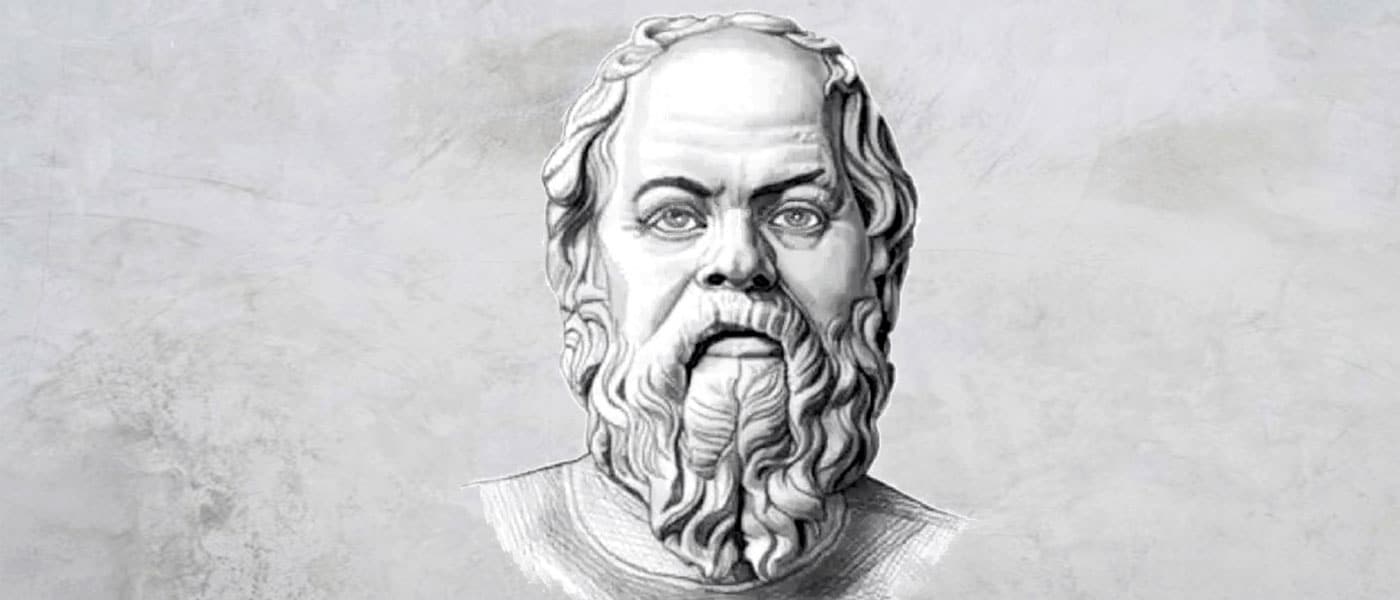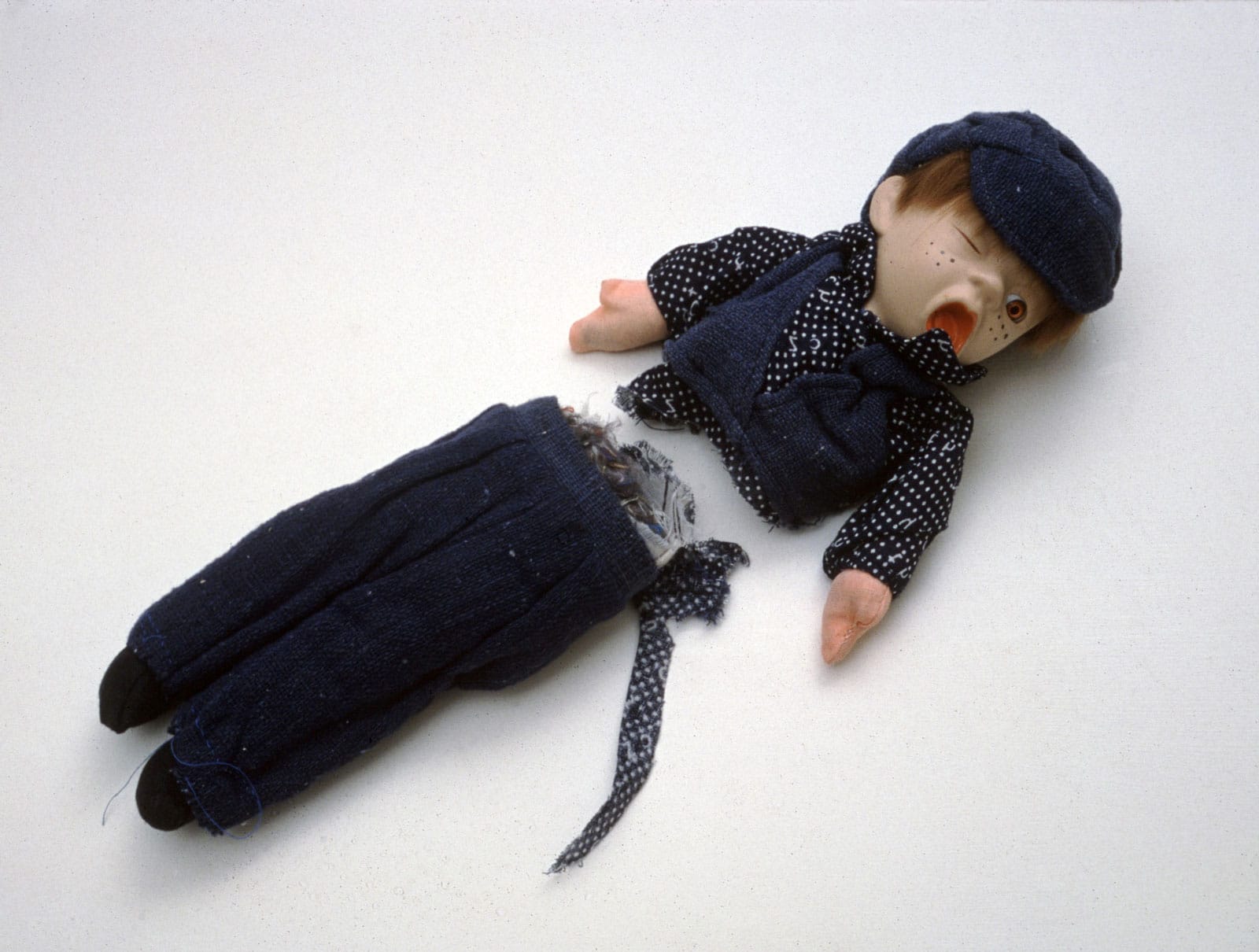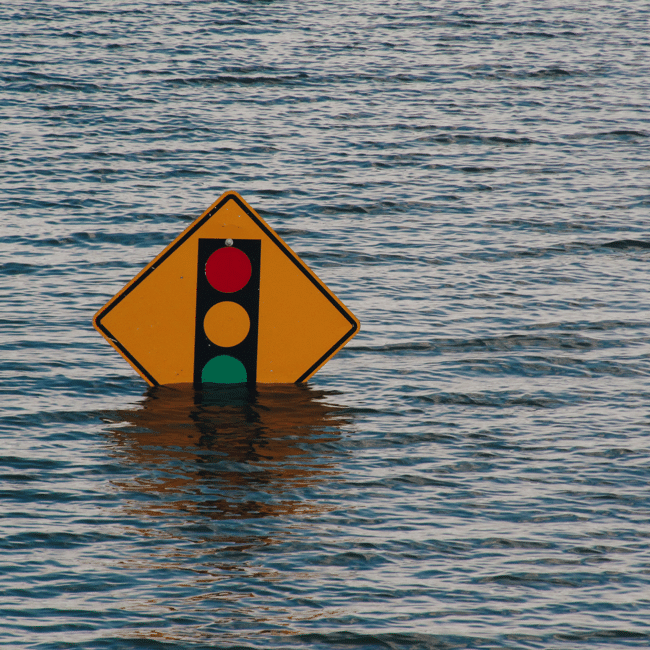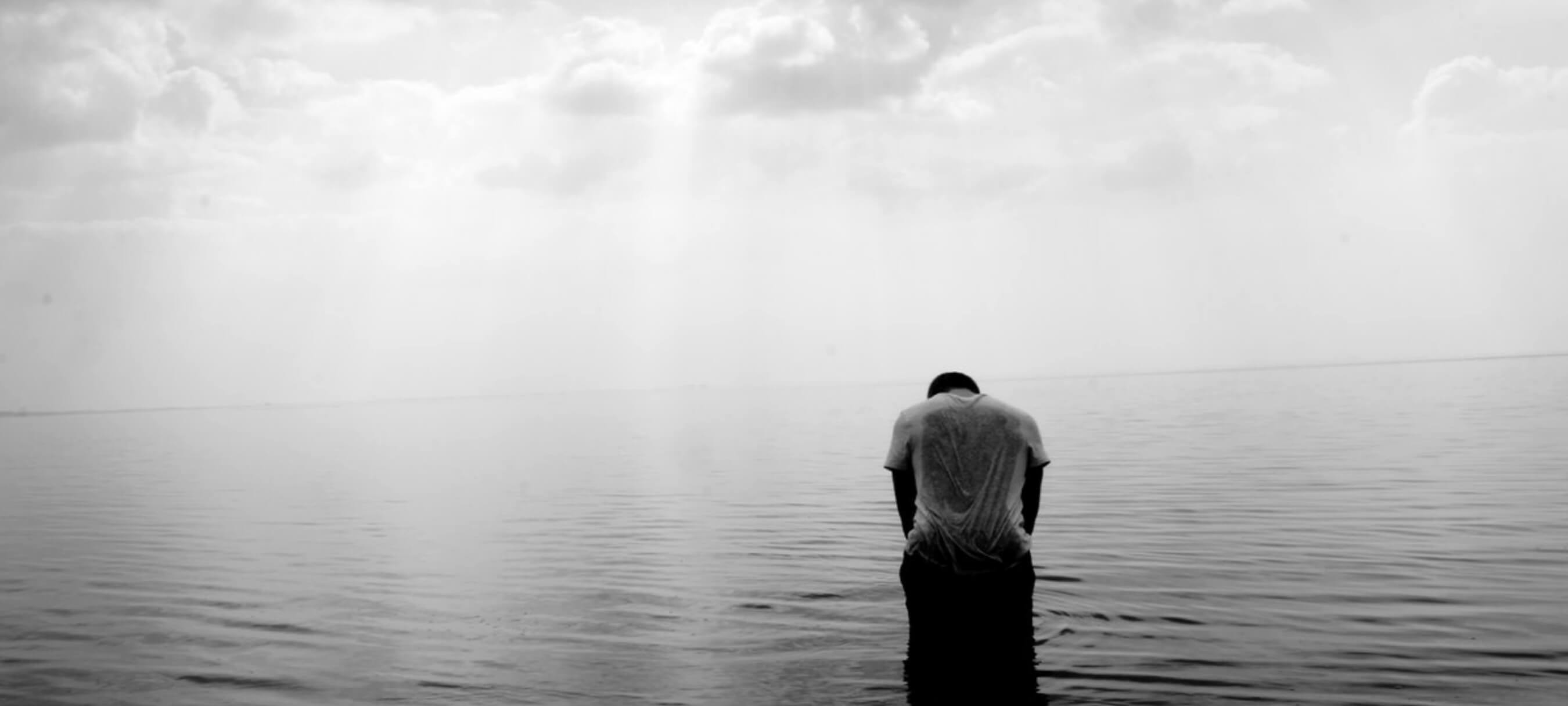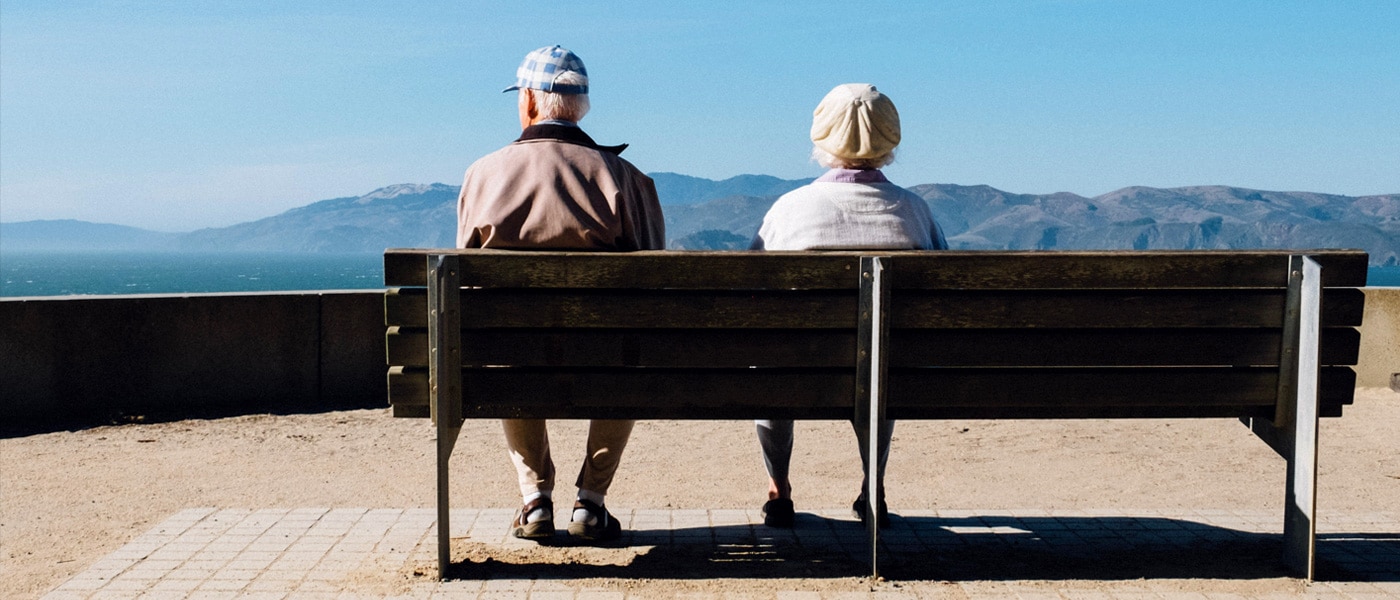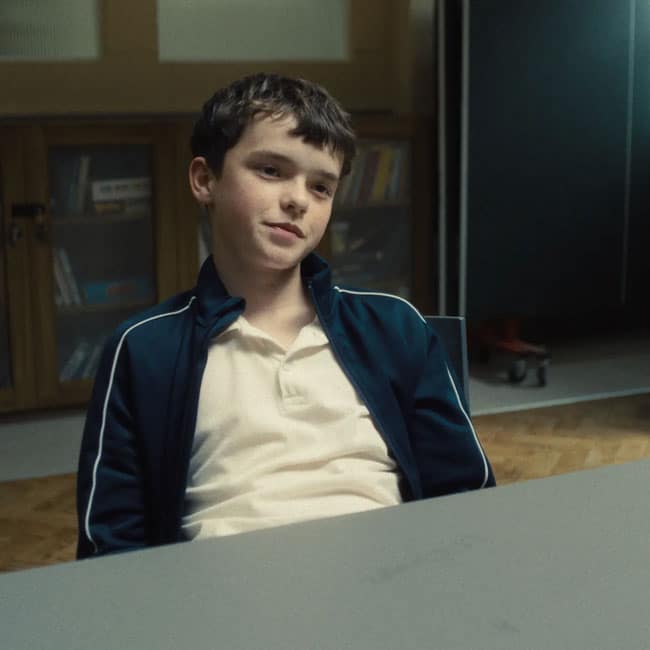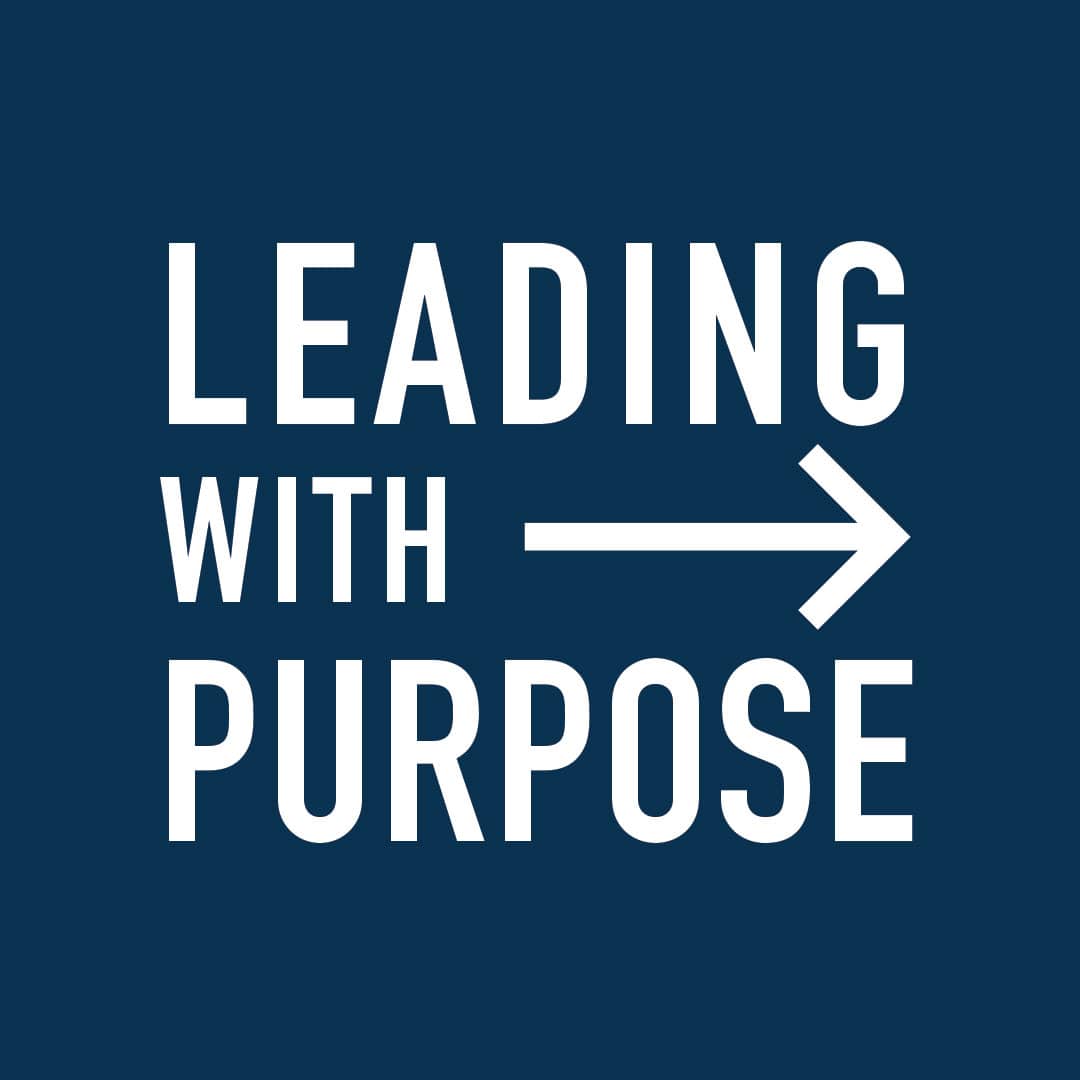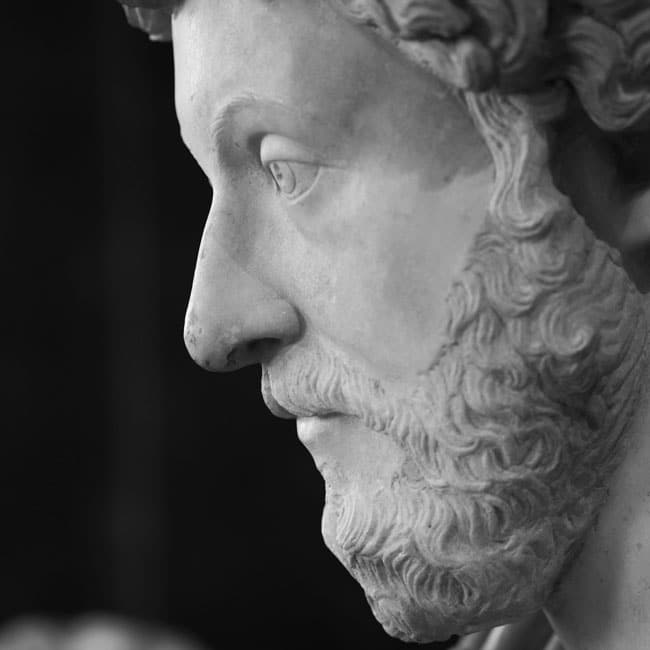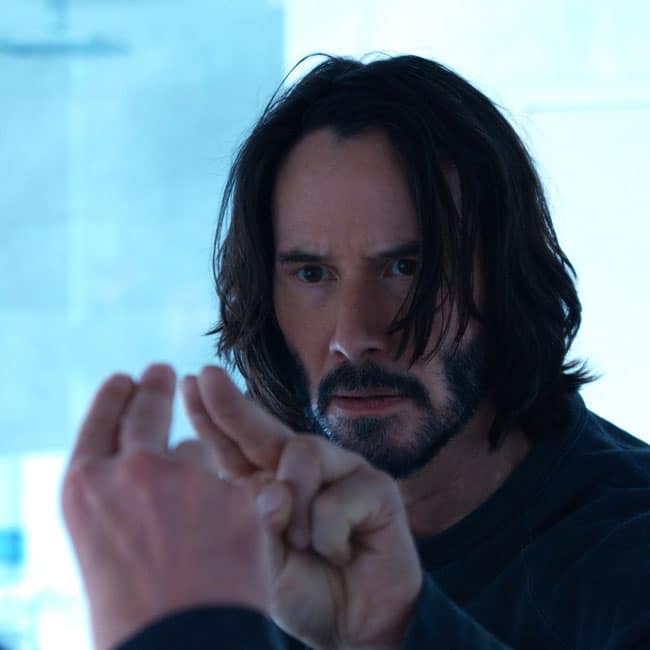Ethics Explainer: Moral Courage

Ethics Explainer: Moral Courage
ExplainerSociety + CulturePolitics + Human Rights
BY The Ethics Centre 29 APR 2025
Martin Luther King Jr, Rosa Parks, Frederick Douglass, Susan B. Anthony, Greta Thunberg, Vincent Lingiari, Malala Yousafzai.
For most, these names, and many more, evoke a sense of inspiration. They represent decades and centuries of steadfast moral conviction in the face of overwhelming national and global pressure.
Rosa Parks, risking the limited freedom she was afforded in 1955 America, refused to acquiesce to the transit segregation of the time and sparked an unprecedented boycott led by Martin Luther King Jr.
Frederick Douglass, risking his uncommon position of freedom and power as a Black man in pre-civil rights America, used his standing and skills to advocate for women’s suffrage.
There have always been people who have acted for what they think is right regardless of the risk to themselves.
This is moral courage. The ability to stand by our values and principles, even when it’s uncomfortable or risky.
Examples of this often seem to come in the form of very public declarations of moral conviction, potentially convincing us that this is the sort of platform we need to be truly morally courageous.
But we would be mistaken.
Speaking up doesn’t always mean speaking out
Having the courage to stand by our moral convictions does sometimes mean speaking out in public ways like protesting the government, but for most people, opportunities to speak up manifest in much smaller and more common ways almost every day.
This could look like speaking up for someone in front of your boss, questioning a bully at school, challenging a teacher you think has been unfair, preventing someone on the street from being harassed or even asking someone to pick up their litter.
In each case, an everyday occurrence forces us to confront discomfort, and potentially danger or loss, to live out our values and ideals. Do we have the courage to choose loyalty over comfort? Honesty over security? Justice over personal gain?
The truth is that sometimes we don’t.
Sometimes we fail to take responsibility for our own inaction. Nothing shows this better than the bystander effect: functionally the direct opposite to moral courage, the bystander effect is a social phenomenon where individuals in group or public settings fail to act because of the presence of others. Being surrounded by people causes many of us to offload responsibility to those around us, thinking: “Someone else will handle it.”
This is where another kind of moral courage comes into play: the ability to reflect on ourselves. While it’s important to learn how and when to speak up, some internal work is often needed to get there.
Self-reflection is often underestimated. But it’s one of the hardest aspects of moral courage: the willingness to confront and interrogate our own thoughts, habits, and actions.
If someone says something that makes you uncomfortable, the first step of moral courage is acknowledging your discomfort. All too often, discomfort causes us to disengage, even when no one else is around to pass responsibility onto. Rather than reckon with a situation or person who is challenging our values or principles, we curl up into our shells and hope the moment passes.
This is because moral courage can be – it takes time and practice to build the habits and confidence to tolerate uncomfortable situations. And it takes even more time and practice to prioritise what we think is right with friends, family and colleagues instead of avoiding confrontation in relationships that are already often complicated.
It can get even more complicated once we consider all of our options because sometimes the right ways to act aren’t obvious. Sometimes, the morally courageous thing to do is actually to be silent, or to walk away, or to wait for a better opportunity to address the issue. These options can feel, in the moment, akin to giving up or letting someone else ‘win’ the interaction. But that is the true test of moral courage – being able to see the moral end goal and push through discomfort or challenge to get there.
The courage to be wrong
The flipside to self-reflection is the ability to recognise, acknowledge and reflect with grace when someone speaks up against us.
It’s hard to be told that we’re wrong. It’s even harder to avoid immediately placing walls in our own defence. Overcoming that is the stuff of moral courage too – not just being able to confront others, but being able to confront ourselves, to question our understanding of something, our actions or our beliefs when we are challenged by others.
Whether these changes are worldview-altering, or simply a swapping of word choice to reflect your respect for others, the important thing is that we learn to sit with discomfort and listen. Listen to criticism but also listen to our own thoughts and figure out why our defences are up.
Because in the end, moral courage isn’t just about bold public stands. It’s about showing up—in big moments and more mundane ones—for what’s right. And that begins with the courage to face ourselves.

Ethics in your inbox.
Get the latest inspiration, intelligence, events & more.
By signing up you agree to our privacy policy
You might be interested in…
Opinion + Analysis
Society + Culture
‘Vice’ movie is a wake up call for democracy
Big thinker
Relationships, Society + Culture
Big Thinker: Socrates
Opinion + Analysis
Relationships, Society + Culture
Violence and technology: a shared fate
Explainer
Society + Culture
Ethics Explainer: Aesthetics
BY The Ethics Centre
The Ethics Centre is a not-for-profit organisation developing innovative programs, services and experiences, designed to bring ethics to the centre of professional and personal life.
Thought experiment: The original position

Thought experiment: The original position
ExplainerSociety + CulturePolitics + Human Rights
BY The Ethics Centre 20 MAR 2025
If you were tasked with remaking society from scratch, how would you decide on the rules that should govern it?
This is the starting point of an influential thought experiment posed by the American 20th century political philosopher, John Rawls, that was intended to help us think about what a just society would look like.
Imagine you are at the very first gathering of people looking to create a society together. Rawls called this hypothetical gathering the “original position”. However, you also sit behind what Rawls called a “veil of ignorance”, so you have no idea who you will be in your society. This means you don’t know whether you will be rich, poor, male, female, able, disabled, religious, atheist, or even what your own idea of a good life looks like.
Rawls argued that these people in the original position, sitting behind a veil of ignorance, would be able to come up with a fair set of rules to run society because they would be truly impartial. And even though it’s impossible for anyone to actually “forget” who they are, the thought experiment has proven to be a highly influential tool for thinking about what a truly fair society might entail.
Social contract
Rawls’ thought experiment harkens back to a long philosophical tradition of thinking about how society – and the rules that govern it – emerged, and how they might be ethically justified. Centuries ago, thinkers like Thomas Hobbes, Jean-Jacques Rousseau and John Lock speculated that in the deep past, there were no societies as we understand them today. Instead, people lived in an anarchic “state of nature,” where each individual was governed only by their self-interest.
However, as people came together to cooperate for mutual benefit, they also got into destructive conflicts as their interests inevitably clashed. Hobbes painted a bleak picture of the state of nature as a “war of all against all” that persisted until people agreed to enter into a kind of “social contract,” where each person gives up some of their freedoms – such as the freedom to harm others – as long as everyone else in the contract does the same.
Hobbes argued that this would involve everyone outsourcing the rules of society to a monarch with absolute power – an idea that many more modern thinkers found to be unacceptably authoritarian. Locke, on the other hand, saw the social contract as a way to decide if a government had legitimacy. He argued that a government only has legitimacy if the people it governs could hypothetically come together to agree on how it’s run. This helped establish the basis of modern liberal democracy.
Rawls wanted to take the idea of a social contract further. He asked what kinds of rules people might come up with if they sat down in the original position with their peers and decided on them together.
Two principles
Rawls argued that two principles would emerge from the original position. The first principle is that each person in the society would have an equal right to the most expansive system of basic freedoms that are compatible with similar freedoms for everyone else. He believed these included things like political freedom, freedom of speech and assembly, freedom of thought, the right to own property and freedom from arbitrary arrest.
The second principle, which he called the “difference principle”, referred to how power and wealth should be distributed in the society. He argued that everyone should have equal opportunity to hold positions of authority and power, and that wealth should be distributed in a way that benefits the least advantaged members of society.
This means there can be inequality, and some people can be vastly more wealthy than others, but only if that inequality benefits those with the least wealth and power. So a world where everyone has $100 is not as just as a world where some people have $10,000, but the poorest have at least $101.
Since Rawls published his idea of the original position in A Theory of Justice in 1972, it has sparked tremendous discussion and debate among philosophers and political theorists, and helped inform how we think about liberal society. To this day, Rawls’ idea of the original position is a useful tool to think about what kinds of rules ought to govern society.

Ethics in your inbox.
Get the latest inspiration, intelligence, events & more.
By signing up you agree to our privacy policy
You might be interested in…
Opinion + Analysis
Relationships, Society + Culture
Joker broke the key rule of comic book movies: it made the audience think
Big thinker
Politics + Human Rights, Relationships
Big Thinker: Eleanor Roosevelt
Opinion + Analysis
Society + Culture, Climate + Environment
Who’s to blame for overtourism?
Opinion + Analysis
Climate + Environment, Politics + Human Rights
Who is to blame? Moral responsibility and the case for reparations
BY The Ethics Centre
The Ethics Centre is a not-for-profit organisation developing innovative programs, services and experiences, designed to bring ethics to the centre of professional and personal life.
Ethics Reboot: 21 days of better habits for a better life

Ethics Reboot: 21 days of better habits for a better life
Opinion + AnalysisHealth + Wellbeing
BY The Ethics Centre 12 FEB 2025
Many of us know how easy it is for our New Year resolutions to fail. And that’s ok, we’re only human. But how do we bring about change, if we want to?
For many people, the start of a new year is a time to make resolutions. For others, it’s a time to reflect on how to make the world a little better by becoming a little better as a person.
Unfortunately, for the majority of people, our commitment to change often fails and the gap between our intentions and actions can feel insurmountable. The Ethics Centre’s Director of Innovation and Education, John Neil says this is because, well, we’re human beings. He offers at least three factors behind this:
- We overestimate the power of ‘willpower.’ Often linked to adjacent concepts like resilience and impulse inhibition, the long-standing belief in psychology is that willpower is a finite resource and people have varying reservoirs of it to draw on. The belief was that by bolstering our willpower we’re better able to attain our goals and those that don’t achieve their goals lack willpower. Unfortunately, it’s more complicated than that. Our ability to maintain choices and attain goals is as much about situational context, genetics, and socioeconomic standing as it is about individual psychological traits.
- As a result, any significant behaviour change requires long-standing practice, environmental changes and thoughtfully designed behavioural cues to create pathways of reinforcement to form new habits. In short, even the simplest resolutions require habitual practice.
- Most resolutions are goal-focused – stop smoking, lose weight – so they take on instrumental importance, meaning they focus exclusively on achieving an end state or outcome. With the high difficulty in achieving these outcomes resolutions can become self-defeating – the end becomes the goal rather than a focus on the motivating reason that inspired the goal.
That’s not to say that resolutions are a bad thing. We are hard-wired to demarcate life into phases. Birthdays, seasons, events, and the change of year are all relatively arbitrary events but are full of symbolic significance. They are moments that matter because we invest these occasions with meaning. They can provide a much-needed pause in the busy and difficult aspects of life to reflect and reassess what’s important to us.
So, how can we reset to focus on what we want more of in our lives?
The Ethics Centre has developed Ethics Reboot, a new, free, online 21-day challenge designed to create better habits.
Rather than feeling the pressure to write down a long list of goals, that have little chance of sticking, the course asks you to think instead about the qualities you’d like to cultivate. What qualities for you express the best aspects of a life well lived? Which of those would you choose to have more of in your life?
Some philosophers refer to these qualities as virtues – those behaviours, skills or mindsets that are worthy to be regarded as features of living a good life. Wisdom, justice, and courage were on Aristotle’s shortlist.
Rather than setting goals like reading more books or spending less time on my phone – think instead of the quality you are calling more of into your world – like being curious, courageous or compassionate.
Ethics Reboot provides you with one new quality or virtue to focus on each day for 21 days. Each daily challenge will give you guidance, motivation and inspiration to bring that quality into your every day.
In the midst of busy lives – and an increasingly tumultuous world – the challenge of the course is to carve out a few minutes each day to learn something new, put it into practice and reflect on it’s impact in your life. The result? Creating a new habit of daily self-reflection that might just help kick-start new ways of thinking, being and doing life that little bit better.
The course kicks off from when you sign up and lasts for 21 days – just enough time to develop some fresh new habits. You can join by signing up on our website.
Each day you’ll receive:
- A daily email explainer introducing you to a new virtue
- A guided activity to help practice what you’ve learnt
- A reflection exercise to build your ethical muscle and integrate the virtue into your everyday
In a time where many aspects of life can feel tough, focus on what you can control. And you might just see that resolution through.
Take our 21-day challenge and sign up for Ethics Reboot here.
Ethics in your inbox.
Get the latest inspiration, intelligence, events & more.
By signing up you agree to our privacy policy
You might be interested in…
Opinion + Analysis
Health + Wellbeing, Relationships
Confirmation bias: ignoring the facts we don’t fancy
Opinion + Analysis
Health + Wellbeing, Relationships
Male suicide is a global health issue in need of understanding
Opinion + Analysis
Health + Wellbeing, Politics + Human Rights, Relationships
People with dementia need to be heard – not bound and drugged
Opinion + Analysis
Health + Wellbeing, Relationships
Are there any powerful swear words left?
BY The Ethics Centre
The Ethics Centre is a not-for-profit organisation developing innovative programs, services and experiences, designed to bring ethics to the centre of professional and personal life.
Big Thinker: Epicurus
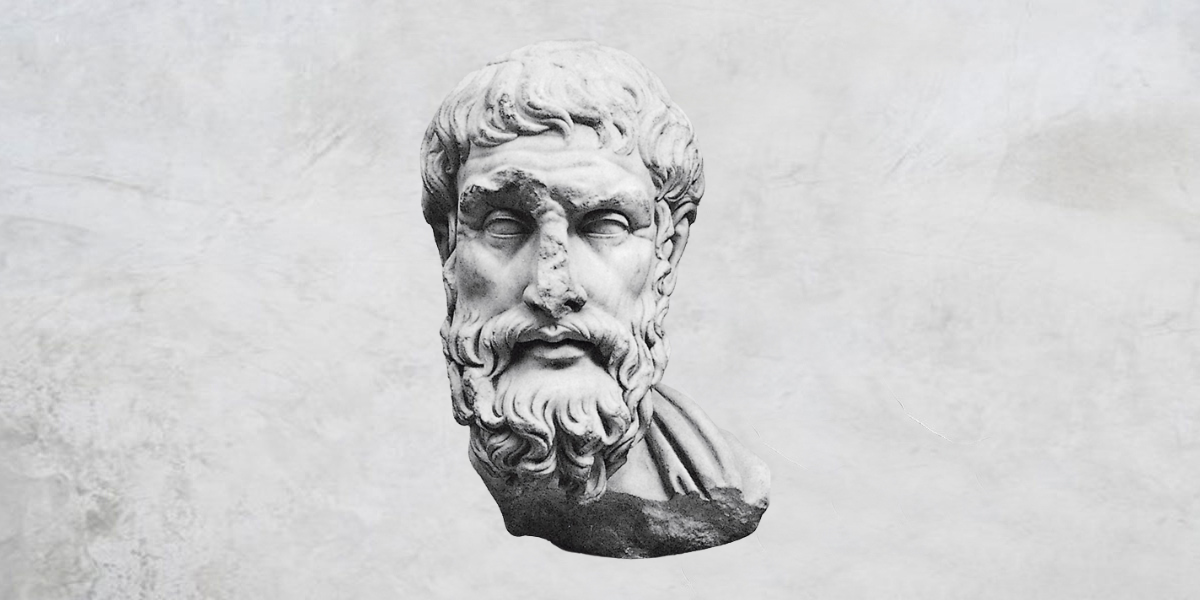
Epicurus (341–270 BCE) was an ancient Greek philosopher and founder of the highly influential school of philosophy, Epicureanism.
In a time dominated by Platonism, Epicurus established a competing school in Athens known as “the Garden”. Many of his teachings were direct contradictions of the teachings of Plato, other schools of thought and generally accepted ideas in areas like theology and politics. He also flouted norms of the time by openly allowing women and slaves to join and participate in the school.
Though he strongly insisted otherwise, dubbing himself “self-taught”, records indicate Epicurus was greatly influenced by many philosophers of and before his time such as Democritus, Pyrrho and Plato.
Theology and Ethics
Two significant departures from the popular ancient Greek thought involved Epicurus’ ideas about theology. In general, he was critical of popular religion, though in a much more restrained way than his later followers.
One departure was his thoughts on the afterlife. Epicurus believed that there was no afterlife, and that any belief in it, especially the idea that the afterlife could involve punishment and suffering, was a harmful superstition that prevented people from living a good life.
“Accustom thyself to believe that death is nothing to us, for good and evil imply sentience, and death is the privation of all sentience; . . . Death, therefore, the most awful of evils, is nothing to us, seeing that, when we are, death is not come, and, when death is come, we are not.”
From Letter to Menoeceus
Another departure was his thoughts on the gods, and specifically their involvement in human affairs, also known as divine providence. Unlike most, Epicurus believed in the gods while simultaneously believing that they were completely removed from the mortal realm and uninvolved in human affairs.
The Epicurean view of the gods was that they were perfect beings, and involvement in anything outside their perfection would tarnish that perfection. The view denies that they exhibit any control over humans or the world, and that they instead function mainly as aspirational figures – beings to admire and emulate.
Both of these departures from popular ancient Greek religion came from his unique hedonistic philosophy. Epicurus believed that the ultimate purpose of philosophy was to achieve, and help others to achieve, certain states of being that characterise the eudaimonic (happy, flourishing) life.
Specifically, he thought that eudaimonia was attained through internal peace (ataraxia), an absence of pain (aponia) and a life of friendship.
This was the basis of his hedonism – unique in that he defined pleasure as an absence of suffering and so had a far greater focus on moderation than what is typically associated with hedonism.
In fact, Epicurus was disapproving of excessiveness generally:
“…the pleasant life is produced not by a string of drinking bouts and revelries, nor by the enjoyment of boys and women, nor by fish and the other items on an expensive menu, but by sober reasoning.”
These ideas informed his theological thoughts. He believed that a belief in the afterlife was superstitious and bad because it was most often a source of fear. Instead of acting morally to avoid the risk of punishment in the afterlife, which causes suffering in the current life, Epicurus taught that we should instead act morally because we will inevitably suffer from guilt or the fear of being discovered if we do not.
Likewise, he taught that while the gods had no interest in the affairs of humans, we should still act morally and kindly because those who do will have no fear, leading to ataraxia.
“…it is not possible to live pleasurably without living sensibly and nobly and justly.”
Pleasure and Desire
As part of his ethical teachings, Epicurus noted different types of pleasures and desires that prevent us from achieving a life free from suffering and trouble.
He was particularly focused on desire because he saw it, like fear, as a ubiquitous source of suffering. He taught that there are three kinds of desires: two natural, and one empty. Natural desires can be necessary (like food or shelter) or unnecessary (like luxury food or recreational sex). Empty desires on the other hand correspond to no genuine, natural need and often can never be satisfied (wealth, fame, immortality), leading to continuous pain of unfulfilled desire.
Unfortunately, like many Hellenistic philosophers, the vast majority of Epicurus’ writings have remained undiscovered, instead pulled together largely through the writings of contemporaries, followers and later historians. Despite this, his ideas have resurfaced throughout the centuries since and influenced the thinking of ancient and modern philosophers alike.

Ethics in your inbox.
Get the latest inspiration, intelligence, events & more.
By signing up you agree to our privacy policy
You might be interested in…
Opinion + Analysis
Relationships, Society + Culture
In Review: The Festival of Dangerous Ideas 2018
Opinion + Analysis
Society + Culture
FODI returns: Why we need a sanctuary to explore dangerous ideas
Opinion + Analysis
Business + Leadership, Politics + Human Rights, Society + Culture
Drawing a line on corruption: Operation eclipse submission
Opinion + Analysis
Society + Culture
Sex ed: 12 books, shows and podcasts to strengthen your sexual ethics
BY The Ethics Centre
The Ethics Centre is a not-for-profit organisation developing innovative programs, services and experiences, designed to bring ethics to the centre of professional and personal life.
Ethics Explainer: Just Punishment

Ethics Explainer: Just Punishment
ExplainerSociety + CulturePolitics + Human Rights
BY The Ethics Centre 6 DEC 2024
In 2001, Marcellus Williams was convicted of killing Felicia Gayle, found stabbed to death in her home in 1998.
Over two decades later, he was given the death penalty, directly against the wishes of the prosecutor, the jury and, notably, Gayle’s family.
Cases like this draw our attention to the nature of punishment and its role in delivering justice. We can think about justice, and hence what is just punishment, as a question about what we deserve. But who decides what we deserve, and on what basis?
There are many ways that people think about punishment, but generally it’s justified in some variation of the following: retribution, deterrence, rehabilitation, and/or restoration. These are not all mutually exclusive ideas either, but rather different arguments about what should be the primary purpose and mode of punishment
Purposeful Punishment
Punishment is often viewed through the lens of retribution, where wrongdoers are punished in proportion to their offenses. The concept of retributive justice is grounded in the idea that punishment restores balance in society by making offenders ‘pay’ in various ways, like prison time or fines, for their transgressions.
This perspective is somewhat intuitive for most people, as it’s reflected in our moral psychology. When we feel wronged, we often become outraged. Outrage is a moral emotion that often inspires thoughts of harming the wrongdoer, so retributive punishment can feel intuitively justified for many. And while it has roots in our evolutionary psychology, it can also be a harmful disposition to have in a modern context.
The 18th-century philosopher Immanuel Kant strongly defended retributive justice as a matter of principle, much like his general deontological moral convictions. Kant believed that people who commit crimes deserve to be punished simply because they have done wrong, irrespective of whether it leads to positive social outcomes. In his view, punishment must fit the crime, upholding the dignity of the law and ensuring that justice is served.
However, there are many modern critics of retributivism. Some argue that focusing solely on punishment in a retributive way overlooks the possibility of rehabilitation and societal reintegration. These criticisms often come from a consequentialist approach, focusing on how to create positive outcomes.
One of these is an ongoing ethical debate about the role of punishment as a deterrent. This is a consequentialist perspective that suggests punishment should aim to maximise social benefits by deterring future crimes. This view is often criticised because of its implications on proportionality. If punishment is used primarily as a deterrent, there is a high risk that people will be punished more harshly than their crimes warrant, merely to serve as an example. This approach can conflict with principles of fairness and proportionality that are central to most conceptions of justice. Some also consider it to be a view that misunderstands the motives and conditions that surround and cause common crime.
Other, more contemporary, consequentialist views on punishment focus on rehabilitation and restoration. Feminist philosophers, such as Martha Nussbaum, have proposed a broader, more compassionate view of justice that emphasises human dignity. Nussbaum suggests that a purely punitive system dehumanises offenders, treating them merely as vessels for punishment rather than as individuals with the capacity for moral growth and change.
They argue that this dehumanisation is a primary factor in high rates of recidivism, as it perpetuates the cycle of disadvantage that often underpins crime. Hence, an ability for change and reintegration is seen by some as crucial to developing pro-social methods of justice that decrease recidivism.
Importantly, these views are not inherently at odds with traditional punishment, like prison. However, they are critical of the way that punishment is enacted. To be in line with rehabilitative methods, prisons in most countries worldwide would need to see a significant shift towards models that respect the dignity of prisoners through higher quality amenities, vocations, education, exercise and social opportunities.
One unintuitive and hence potentially difficult aspect of these consequentialist perspectives is that in some cases punishment will be deemed altogether unnecessary. For example, if a wrongdoer is found to be impaired significantly by mental illness (e.g. dementia) to the extent that they have no memory or awareness of their wrongdoing, some would claim that any type of retributive punishment is wrong, as it serves no purpose aside from satisfying outrage. This can be a difficult outcome to accept for those who see punishment as needing to “even the scales”.
Justice and Punishment
The ethical implications of punishment become even more complex when considering factors like bias and the reality of disproportionate sentencing. For example, marginalised groups face more scrutiny and harsher sentences for similar crimes, both in Australia and globally. This disparity is often unconscious, resulting in a denial of responsibility at many steps in the system and a resistance to progress.
If punishment is disproportionately applied to disadvantaged groups, then it is not just. The ethical demand of justice is for equal treatment, where punishment reflects the crime, not the social status or identity of the offender.
Whether our idea of punishment involves revenge or benevolence, it’s important to understand the motivations behind our convictions. All the sides of the punishment spectrum speak to different intuitions we hold, but whether we are steadfast in our right to get even, or we believe an eye for an eye leaves the whole world blind, we must be prepared to find the nuance for the betterment of us all.

Ethics in your inbox.
Get the latest inspiration, intelligence, events & more.
By signing up you agree to our privacy policy
You might be interested in…
Big thinker
Politics + Human Rights
Big Thinker: Kimberlé Crenshaw
Opinion + Analysis
Climate + Environment, Politics + Human Rights
Are we prepared for climate change and the next migrant crisis?
Opinion + Analysis
Science + Technology, Society + Culture
AI is not the real enemy of artists
Opinion + Analysis
Society + Culture
What does Adolescence tell us about identity?
BY The Ethics Centre
The Ethics Centre is a not-for-profit organisation developing innovative programs, services and experiences, designed to bring ethics to the centre of professional and personal life.
6 dangerous ideas from FODI 2024

From dangerous dissenters to powerful provocations – this year Festival of Dangerous Ideas speakers covered some of the thorniest dilemmas of our time.
Here are 6 things we learnt at FODI 2024:
Our ideological chambers can be dismantled, but only if we can listen to others
Sharing some of the more extreme responses to her work, cultural critic Roxane Gay examines the costs of unapologetically sharing bold ideas and opinions.
Speaking to the current state of fragmented discourse, where our political differences are more calcified than ever, Gay says “This mode of discourse assumes that what we believe in and our faith in what we know are so fragile that they cannot stand thoughtful engagement”. In her talk, she says there is still hope to create progress if we are able to become more elastic in our thoughts, “to stop screaming and start listening”.
The machines are killing our kids
Psychologist Jean Twenge makes the case that younger generations are suffering in life-altering ways because of the amount of time they spend looking at screens. Through years of research and millions of survey responses, she argues that since the proliferation of smartphones, adolescents and teens are increasingly and significantly more likely to suffer from symptoms of depression, while simultaneously are much less likely to engage in positive wellbeing practices like sleeping enough, seeing friends or exercising.
Twenge proposes that a radical shift in the amount we use our phones is needed (as young people, as parents and as a society) to reverse these harmful effects.
We need to engage in a culture of growth rather than cancellation
If podcast host Megan Phelps-Roper had left the extremist Westboro Baptist Church today, cancel culture might have meant she’d never have been forgiven, and she wouldn’t have become such a powerful voice for persuasion and reconciliation. Speaking on the Uncancelled Culture panel, Megan argues for a radical form of forgiveness, where we’re forced to recognise someone’s humanity, consider not just what they did but why, and take a chance on the possibility of redemption. While it can be difficult for us to set aside our sense of justice to engage with empathy, just as it can be difficult for us to express contrition for our own errors, but it’s only in doing so that we will shift from cancel culture to a culture of growth.
Coming to terms with our desire for something greater can help us understand the human condition
In a cheeky conversation and book reading, comedian and author David Baddiel says his desperate desire for God convinced him that there isn’t one. “Desire provides no frame for reality”, says Baddiel. This recognition can at once be a liberation from our impulses, while at the same time be a reminder and a call for us to embrace the common humanity that compels us all to crave order within the chaos of life.
In difficult conversations, the most effective tool to communicate with our opponent is empathy
One year on from the release of the divisive podcast series The Witch Trials of JK Rowling, host and former member of the Westboro Baptist Church Megan Phelps Roper, and podcast producer and journalist Andy Mills reflect on the radical power of listening when we come across viewpoints in direct opposition of our own.
As they dissect the reasoning that led them to wade into the difficult cultural conversation surrounding sex and gender, Phelps-Roper cites her previous experience talking at the 2018 Festival of Dangerous Ideas about leaving the Westboro Baptist church “Listening is not agreeing, empathy is not a betrayal of your cause… My life was profoundly changed by exactly that kind of dialogue. It’s what caused me to leave extremism and find meaning and love and freedom and grace in a world I’d been taught was evil”.
Denial sustains liberal imagination
How can a left leaning Western person reconcile the commitment to democracy and civil rights, with support for a state that practices apartheid? Academic Saree Makdisi argues it’s because we are living in a culture of denial. He says the mechanisms of occlusion, narrative and appealing to progressive Western values serve to make us overlook the world’s horrors.
Catch up on select FODI 2024 sessions, streaming on demand for a limited time only.
BY The Ethics Centre
The Ethics Centre is a not-for-profit organisation developing innovative programs, services and experiences, designed to bring ethics to the centre of professional and personal life.
Ethics in your inbox.
Get the latest inspiration, intelligence, events & more.
By signing up you agree to our privacy policy
You might be interested in…
Opinion + Analysis
Relationships, Society + Culture
How can you love someone you don’t know? ‘Swarm’ and the price of obsession
Opinion + Analysis
Health + Wellbeing, Society + Culture
Should I have children? Here’s what the philosophers say
Opinion + Analysis
Society + Culture
Schools of thought: What is education for?
Opinion + Analysis
Society + Culture
Lisa Frank and the ethics of copyright
Ethics explainer: The principle of charity

The principle of charity suggests we should assume good intentions about others and their ideas, and give them the benefit of the doubt before criticising them.
British philosopher and mathematician, Bertrand Russell, was one of the sharpest minds of his generation. Anyone deigning to offer a lecture in his presence at Cambridge University was sure to have every iota of their reasoning scrutinised and picked apart in excruciating detail.
Yet, it’s said that before criticising arguments, Russell would thank them warmly for sharing their views, then he might ask a question or two of clarification, then he’d summarise their position succinctly – often in more concise and persuasive terms than they themselves had used – and only then would he expose its flaws.
What Russell was demonstrating was the principle of charity in action. This is not a principle about giving money to the poor, it’s about assuming good intentions and giving others the benefit of the doubt when we interpret what they’re saying.
The reason we need charity when listening to others is that they rarely have the opportunity to say everything they need to say to support their view. We only have so many minutes in the day, so when we want to make an assertion or offer an argument, it’s simply not possible to account for every assumption, outline every implication and cover off all possible counterarguments.
That means there will inevitably be things left unsaid. Given our natural propensity to experience disagreement as a form of conflict, and thus shift into a defensive posture to protect our ideas (and, sometimes, our identity), it’s all too easy for us to fill in the gaps with less than charitable interpretations. We might assume the person speaking is ignorant, foolish, misled, mean spirited or riddled with vice, and fill the gaps with absurd assertions or weak arguments that we can easily dismantle.
We also have to decide whether they are speaking in good faith, or whether they’re just engaging in a bit of virtue signalling and didn’t really mean to offer their views up for scrutiny, or whether they’re trying to troll us. Again, it’s all too easy to allow our suspicions or defensiveness to take over and assume someone is speaking with ill intent.
However, doing so does them – and us – a disservice. It prevents us from understanding what they’re actually trying to say, and it blocks us from either being persuaded by a good point or offering a valid criticism where one is due. Failing to offer charity is also a sign of disrespect. And it’s well known that when people feel disrespected, they’re even more likely to double down on their defensiveness and fight to the bitter end, even if they might otherwise have been open to persuasion.
It’s probably no surprise to hear that the internet is a hotbed of uncharitable listening. Many people have been criticised, dismissed, attacked or cancelled because they have said or done something ambiguous – something that could be interpreted in either a benign or a negative light. Some commentators on social media are all too ready to uncharitably interpret these actions as revealing some hidden malice or vice, and they leap to condemnation before taking the time to unpack what the speaker really meant.
Charity requires more from us, but the rewards can be great. Charity starts by assuming that the person speaking is just as informed, intelligent and virtuous as we are – or perhaps even more so. It encourages us to assume that they are speaking in good faith and with the best of intentions.
It requires us to withhold judgement as we listen to what’s being said. If there are things that don’t make sense, or gaps that need filling, charity encourages us to ask clarificatory questions in good faith, and really listen to the answers. The final step is to repeat back what we’ve heard and frame it in the strongest possible argument, not the weakest “straw man” version. This is sometime referred to as a “steel man”.
Doing this achieves two things. First, the speaker will feel heard and respected. That immediately puts the relationship on a positive stance, where everyone feels less need to defend themselves at all costs, and it can make people open to listening to alternative viewpoints without feeling threatened.
Secondly, it gives you a fighting chance of actually understanding what the other person really believes. So many conversations end up with us talking past each other, getting more frustrated by the minute. Arriving at a point of mutual understanding can be a powerful way to connect with someone and have an actually fruitful discussion.
It is important to point out that exercising charity doesn’t mean agreeing with whatever other people say. Nor does it mean excusing statements that are false or harmful.
Charity is about how we hear what is being said, and ensuring that we give the things we hear every possibility to convince us before we seek to rebut them.
However, if we have good reason to believe that what they’re saying, after we’ve fully understood it in its strongest possible form, is false or harmful, then we need not agree with them. Indeed, we ought to speak out against falsehood and harm whenever possible. And this is where exercising charity, and building up respect, might make others more receptive to our criticisms, as were many of the people who gave a lecture in the presence of Bertrand Russell.
The principle of charity doesn’t come naturally. We often rail against views that we find ridiculous or offensive. But by practising charity, we can have a better chance of understanding what people are saying and of convincing them of the flaws in their views. And, sometimes, by filling in the gaps in what others say with the strongest possible version of their argument, we might even change our own mind from time to time.
This article has been updated since its original publication on 10 March 2017.

Ethics in your inbox.
Get the latest inspiration, intelligence, events & more.
By signing up you agree to our privacy policy
You might be interested in…
Opinion + Analysis
Relationships, Society + Culture
Greer has the right to speak, but she also has something worth listening to
Explainer
Relationships
Ethics Explainer: Akrasia
Opinion + Analysis
Relationships
Courage isn’t about facing our fears, it’s about facing ourselves
Opinion + Analysis
Health + Wellbeing, Politics + Human Rights, Relationships
There’s more than lives at stake in managing this pandemic
BY The Ethics Centre
The Ethics Centre is a not-for-profit organisation developing innovative programs, services and experiences, designed to bring ethics to the centre of professional and personal life.
10 dangerous reads for FODI24

Exploring crumbling democracies and generational warfare to moral panic, The Festival of Dangerous Ideas returns 24-25 August to Carriageworks, Sydney.
FODI24 will create a sanctuary for those wanting to cut through the noise, ask hard questions and engage in good faith conversation about the most challenging issues of our time.
Sharpen your mind with 10 dangerous books from this year’s line-up of thinkers, artists, experts and disruptors. You know, the books you need to buy before they are banned, burnt or redacted forever…
Roxane Gay: Opinions

Focusing on the art of argument, this retrospective of essays and writings from culture critic Roxane Gay covers politics, race and identity, feminism, popular culture, and more.
Roxane Gay // How to Have Dangerous Ideas // Sat 24 August, 12:30pm
David Runciman: How Democracy Ends

A provocative book by political philosopher and historian David Runciman, asks the most trenchant questions that underlie the disturbing patterns of our contemporary political life.
David Runciman // Votes for 6 Year Olds // Sat 24 August, 4:30pm
Jean Twenge: iGen
Drawing from nationally representative surveys of 11 million young people as well as in-depth interviews, iGen is the first book to document the cultural changes shaping today’s teens and young adults, documenting how their changed world has impacted their attitudes, worldviews, and mental health.
Jean Twenge // The Machines Killing Our Kids // Sat 24 August, 10:15am
David Baddiel: The God Desire
A philosophical essay that utilises comedian David Baddiel’s trademarks of storytelling and personal anecdotes, offering a highly readable new perspective on the most ancient of debates.
David Baddiel // The God Desire // Sun 25 Aug, 6:45pm
Megan Phelps-Roper: Unfollow

A gripping memoir of escaping extremism, podcast host Megan Phelps-Roper uncovers her moral awakening, her departure from the Westboro Baptist Church, and how she exchanged the absolutes she grew up with for new forms of warmth and community. Her story exposes the dangers of black-and-white thinking and the need for true humility in a time of angry polarisation.
Megan Phelps-Roper & Andy Mills // The Witch Trials // Sat 24 Aug, 6:30pm
Jem Bendell: Breaking Together

In an era of societal collapse, academic Jem Bendell explores how the full pain of our predicament can liberate us into living more courageously and creatively.
Jem Bendell // Breaking Together // Sun 25 Aug, 3:45pm
Saree Makdisi: Tolerance is a Wasteland

Academic Saree Makdisi reveals the system of emotional investments and curated perceptions that sustains the liberal imagination of a progressive and democratic Israel.
Saree Makdisi // Tolerance is a Wasteland // Sun 25 Aug, 12:45pm
Masha Gessen: Surviving Autocracy

A guide to understanding and recovering from the calamitous corrosion of American democracy over the past few years from Russian-born writer and journalist Masha Gessen.
Masha Gessen // The War of the Narratives // Sat 24 August, 2:30pm
Jen Gunter: Blood

A book from the Internet’s OBGYN that fights myths and fear mongering with real science, inclusive facts, and shame-free advice on the topic that impacts more than 1.8 billion people worldwide: menstruation.
Jen Gunter // Lifting the Curse // Sun 25 Aug, 11:45am
Coleman Hughes: The End of Race Politics

Author Coleman Huges makes the case for a colorblind approach to politics and culture, warning that the so-called ‘anti-racist’ movement is driving us—ironically—toward a new kind of racism.
Coleman Hughes & Josh Szeps // A Colourblind Society: Uncomfortable Conversations Live // Sun 25 Aug, 4:45pm
These titles, plus more will be available at the Dangerous Books x Gleebooks popup – running 10am-8pm across 24-25 August at Carriageworks, Sydney. Check out the full FODI program at festivalofdangerousideas.com
BY The Ethics Centre
The Ethics Centre is a not-for-profit organisation developing innovative programs, services and experiences, designed to bring ethics to the centre of professional and personal life.
Ethics in your inbox.
Get the latest inspiration, intelligence, events & more.
By signing up you agree to our privacy policy
You might be interested in…
Opinion + Analysis
Society + Culture
Why are people stalking the real life humans behind ‘Baby Reindeer’?
Opinion + Analysis
Society + Culture, Politics + Human Rights
‘The Zone of Interest’ and the lengths we’ll go to ignore evil
Opinion + Analysis
Society + Culture
Ethics on your bookshelf
Opinion + Analysis
Society + Culture
Save the date: FODI returns in 2020!
Meet James Shipton, our new Fellow uncovering the ethics of regulation

Meet James Shipton, our new Fellow uncovering the ethics of regulation
READBusiness + Leadership
BY The Ethics Centre 23 JUL 2024
We’re thrilled to announce we’ve appointed James Shipton as an Ethics Centre Fellow.
Former chair of ASIC and one of Australia’s top corporate regulators, James has over 20 years experience in regulation, financial markets, the law and academia, both internationally and in Australia.
Most recently, he was the Executive Director of Harvard Law School’s Program on International Financial Systems. Prior to that, his career has included Executive Director and Commission member of the Securities and Futures Commission (SFC) of Hong Kong and almost a decade at Goldman Sachs in Hong Kong.
To welcome him, we sat down with James to discuss the role ethics plays when it comes to regulation and the banking and financial services industry.
Tell us, what draw you to a career in the financial services sector?
Finance always fascinated me ever since my father took me to the Melbourne Stock Exchange after school one day in the 1970s. I remember him taking me into the ‘open outcry’ market and explaining how the ‘chalkies’ wrote the bid and offer prices on black board on a mezzanine. It was exciting, noisy, and thrilling. I was hooked.
As I got older, I realised the important societal role finance played; in addition to its economic one. It facilitated modern life and allowed us all to plan for the future and prepare against risks. It is this interconnection between finance’s economic and social roles that fascinates me; that is also an intersection that is under-appreciated, including by people working in finance.
Reflecting on the Hayne Royal Commission and your role at ASIC are you now seeing some positive changes to the industry?
Yes and no. Paradoxically, the larger financial institutions were the ones who have moved in a more positive direction whilst various governments and government agencies have let the momentum slip from the Royal Commission. Perhaps, in part this was because of the pandemic but it was also ideological and/or political. The way I have described it, the Royal Commission provided a ‘sugar hit’ to ASIC and APRA; but that was fleeting, and we have returned to the status quo of lack of policy and funding prioritisation for those all-important regulators.
What kind of work will you be engaging with at The Ethics Centre?
I am currently writing a book on optimising regulation by improving regulatory design, governance, and strategy. As part of this project, I am developing ways and means for regulators and regulated persons to better understand each other; by doing so the purpose of regulation will more likely be achieved. There is a wonderful expression in Cantonese, ‘gai tong aap gong’ which translates to ‘the duck is talking to the chicken’. That is how I see regulators and the regulated; they both look similar, but they are each talking a completely different language and cannot understand the other.
Accordingly, I am working with the Centre to develop greater understanding between regulators and those regulated using ethics and professional integrity as a bridge.
I am also contributing to The Ethics Alliance & the BFSO Young Ambassadors by helping them to better understand the purpose of regulation as well as pass on some of my own professional challenges and experiences.
What does regulation mean to you? And where does ethics sit in the regulatory world?
‘Regulation’ is a much-misunderstood concept; particularly by regulators. Regulation is the modification of behaviours pursuant to norms in a sector of importance to society. Put simply, ‘regulators are in the behavioural modification business’. And since regulation is all about ‘norms’ and ‘behaviour’, ethics plays a large part in this equation.
Australia is commonly called a ‘nanny state’. From an international perspective do you think this is a fair label? As a society are we overregulating?
We have to move beyond the debate of ‘over’ or ‘under’ regulating and, instead, get regulation ‘right’. Regulatory systems are far from their optimal state because of a series or structural flaws. First of which is a lack of precision in the objectives or purpose of regulatory systems. My research suggests that most regulators lack a meaningfully precise articulation of their job; that articulation via their statutory purpose or ‘objectives’ is, usually, either as ‘wide a as the Nullarbor Plain’ or highly prescriptive but full of inconsistencies. Unlike central banks who have a clear, precise, and measurable mandates (financial stability, price stability, employment, and/or economic growth), regulators are left to interpret, execute, and then explain unclear, imprecise, and ultimately unmeasurable objectives. From this flows a raft of structural flaws that prevent regulators from ever succeeding (how can they if their definition of ‘success’ is unclear or absent!?).
Self-regulation has proven to realistically not be enough to steer people to making good choices, what do you think are the driving factors that prevent people from doing the right thing?
Self-regulation often (not always) fails for the same reason regulators fail; their objectives are unclear and/or they do not use the full suite of regulatory tools to change behaviour (especially enforcement). Regulation is the utilisation of incentives and disincentives to modify behaviour; rarely does one work without the other.
Do you think people who break the rules are bad or is it our systems that are bad?
A criminal barrister once described his clients to me as “bad, mad, or sad”, adding quickly that ‘most of them are just sad’. In the world of white colour crime, it is probably more a mixture of bad and sad; the latter usually seeing the person descend into the abyss of misconduct. Two must read books about this are: Nick Leeson’s Rogue Trader (how he triggered the collapse of Baring Bros.) and Wizard of Lies: Bernie Madoff and the Death of Trust by Diana Henriques.
Taking the ‘bad’ and ‘sad’ analogy further, our regulatory system needs to account for both. It must be as effective and credible as possible to disincentivise the ‘bad’ against wrongdoing; and incentivise the ‘sad’ to adhere to the purpose of regulation (again, this is why ‘regulatory purpose and objectives’ are so vital).
If you were to be an Australian ambassador to a country, which country would you choose and why?
India in a heartbeat. We have so much in common with India and the potential there – economic, cultural, and societal – is vast. (I also love the food).
And lastly the big one – what does ethics mean to you?
Its everything; its my guiding light. My personal motto is to ‘be a good person by doing good things in a good way’.
Image by Aaron Francis
BY The Ethics Centre
The Ethics Centre is a not-for-profit organisation developing innovative programs, services and experiences, designed to bring ethics to the centre of professional and personal life.
Ethics in your inbox.
Get the latest inspiration, intelligence, events & more.
By signing up you agree to our privacy policy
You might be interested in…
Opinion + Analysis
Business + Leadership, Relationships
Moving work online
LISTEN
Business + Leadership
Leading With Purpose
Opinion + Analysis
Business + Leadership, Politics + Human Rights
Do diversity initiatives undermine merit?
Opinion + Analysis
Business + Leadership
Why do good people do bad things?
Ethics Explainer: Cancel Culture

When mass outrage is weaponised and encouraged, it can become more of a threat to the powerless than to those it’s intended to hold to account.
In 2017, comedian Louis C.K. was accused of several instances of sexual misconduct, to which he later admitted in full. This was followed by a few cancelled movies, shows and appearances before he stepped away from public life for a few years.
In 2022, lecturer Ilya Shapiro was put on leave following a tweet he posted a few days before he was employed. Shapiro contended that the university failed in its commitment to free expression by investigating his actions for four months, before reinstating him under the reason that he was not accountable to the university for actions taken before his employment started.
These are both instances of what some people would call “cancel culture”, yet they involve very different issues. To unpack them, we first need to define what we mean by cancel culture.
From around 2015 onwards, the term started gaining mainstream traction, eventually being named Word of the Year by Macquarie Dictionary in 2019:
“The attitudes within a community which call for or bring about the withdrawal of support from a public figure, such as cancellation of an acting role, a ban on playing an artist’s music, removal from social media, etc., usually in response to an accusation of a socially unacceptable action or comment by the figure.”
The quintessential examples of cancel culture are calls from groups of people online for various public figures to be stripped of support, their work boycotted, or their positions removed following perceived moral transgressions. These transgressions can be anything from a rogue tweet to sexual assault allegations, but the common theme is that they are deemed to be harmful and warrant some kind of reaction.
A notoriously contentious concept, cancel culture is defined, or at least perceived, differently based on the social, cultural and political influences of whom you ask. Though its roots are in social justice, some believe that it lacks the nuance needed to meet the ends it claims to serve, and it has been politicised to such an extent that it has become almost meaningless.
Defenders of accountability
The ethical dimensions of this phenomenon become clear when we look at the various ways that cancel culture is understood and perceived by different groups of people. Where some people see accountability, others see punishment.
Defenders of cancel culture, or even those who argue that it doesn’t exist, say that what this culture really promotes is accountability. While there are examples of celebrities being shamed for what might be conceived as a simple faux pas, they say that the intent of most people who engage in this action is for powerful to be held accountable for words and actions that are deemed seriously harmful.
This usually involves calls to boycott, like the ongoing attempts to boycott J.K. Rowling’s books, movies and derivative games and shows because of her vocal criticism of transgender politics since 2019, or like the many attempts to discourage people from supporting various comedians because of issues ranging from discriminatory sets to sexual misconduct and harassment.
Those who view cancel culture practices as modes of justice feel that these are legitimate responses to wrongdoings that help to hold people with power accountable and discourage further abuses of power.
In the case of Louis C.K., it was widely viewed that his sexual misconduct warranted his shunning and removal from upcoming media productions.
Public figures are not owed unconditional support.
While it’s not clear that this kind of boycotting does anything significant to remove any power from these people (they all usually go on to profit even further from the controversy), it’s difficult to argue that this sort of action is unethical. Public figures are in their positions because of the support of the public and it could be considered a violation of the autonomy we expect as human beings to say that people should not be allowed to withdraw that support when they choose.
Where this gets sticky, even for supporters of cancel culture, is when people with relatively little power become the targets of mass social pressure. This can lead to employers distancing themselves from the person, sometimes ending in job loss, to protect the organisation’s reputation. This is disproportionately harmful for disadvantaged people who don’t have the power or resources to ignore, fight, or capitalise on the attention.
This is an even further problem when we consider how it can cause a sense of fear to creep into our everyday relationships. While people in power might be able to shrug off or shield themselves from mass criticism, it’s more difficult for the average person to ignore the effects of closed or uncharitable social climates.
When people perceive a threat of being ostracised by friends, family or strangers because of one wrong step they begin to censor themselves, which leads to insular bubbles of thoughts and ideas and resistance to learning through discussion.
Whether this is a significant active concern is still unclear, though there is some evidence that it is an increasing phenomenon.
Defenders of free speech
Given this, it’s no surprise that the prevailing opposition to cancel culture is framed as a free speech and censorship issue, viewed by detractors as an affront to liberty, constructive debate, social and even scientific progress
Combined with this is a contention that cancelling someone is often a disproportionate punishment and therefore unjust – with people sometimes arguing that punishment wasn’t warranted at all. As we saw earlier, this is particularly a problem when the punishments are directed at disadvantaged, non-public figures, though this position often overstates the effect the punishments have on celebrities and others in significant power.
A problem with the claim that cancel culture is inherently anti-free speech is that, especially when applied to celebrities, it relies on a misconception that a right to free speech entails a right to speak uncontested or entitlement to be platformed.
In fact, similar to boycotting people we disagree with, publicly voicing concerns with the intention of putting pressure on public figures is an exercise in free speech itself.
Accountable free speech
An important way forward for both sides of issue is the recognition that while free speech is important, the limits of it are equally so.
One way we can do this is by emphasising the difference between bad faith and good faith discussion. As philosopher Dr Tim Dean has said, not all speech can or should be treated equally. Sometimes it is logical and ethical to be intolerant of intolerance, especially the types of intolerance that use obfuscating and bad faith rhetoric, to ensure that free speech maintains the power to seek truth.
Focusing on whether a discussion is being had in bad faith or good faith can differentiate public and private discourse in a way that protects the much-needed charitability of conversations between friends and acquaintances.
While this raises questions, like whether public figures should be held to a higher standard, it does seem intuitive and ethical to at least assume the best of our friends and family when having a discussion. We are in the best place to be charitable with our interpretations of their opinions by virtue of our relationships with them, so if we can’t hold space for understanding, respectful disagreement and learning, then who can?
Another method for easing the pressures that public censures can have on private discourse is by providing and practicing clear ways to publicly forgive. This provides a blueprint for people to understand that while there will be consequences for consistent or shameless moral transgressions, there is also room for mistakes and learning.
For a deeper dive on Cancel Culture, David Baddiel, Roxane Gay, Andy Mills, Megan Phelps-Roper and Tim Dean present Uncancelled Culture as part of Festival of Dangerous Ideas 2024. Tickets on sale now.

BY The Ethics Centre
The Ethics Centre is a not-for-profit organisation developing innovative programs, services and experiences, designed to bring ethics to the centre of professional and personal life.
Ethics in your inbox.
Get the latest inspiration, intelligence, events & more.
By signing up you agree to our privacy policy
You might be interested in…
Opinion + Analysis
Health + Wellbeing, Relationships, Society + Culture
Look at this: the power of women taking nude selfies
Opinion + Analysis
Society + Culture, Relationships
Stoicism on Tiktok promises happiness – but the ancient philosophers who came up with it had something very different in mind
Opinion + Analysis
Relationships, Society + Culture
Nothing But A Brain: The Philosophy Of The Matrix: Resurrections
Opinion + Analysis
Science + Technology, Business + Leadership, Society + Culture


